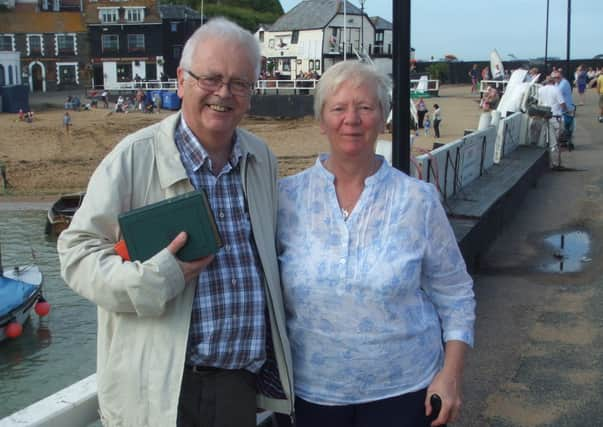Palliative Care Awareness Week 2021: ‘‘Palliative care is not just end of life care- it is about living well to the end’


The concept and words were new to her and wrapped up in fear and she ‘hadn’t a clue what they really meant.’
But, as the Derry woman and her family navigated through the worst time of their lives, they found the care Paul received at the Foyle Hospice enriched the time they had with him, provided the support both he and they needed and focused on ensuring he ‘lived well’ until the end of life.
Advertisement
Hide AdAdvertisement
Hide AdMargaret was speaking to the Journal as part of Palliative Care Week, whose theme this year is ‘It’s More Than You Think.’
A new survey of the public’s perceptions of palliative care commissioned by the All Ireland Institute of Hospice and Palliative Care (AIIHPC) to highlight Palliative Care Week (12 – 18 September 2021) revealed some of the misconceptions that exist about palliative care. Of the 500 people surveyed, more than 1 in 3 people would think they only have days to live if their doctor or healthcare professional talked to them about palliative care, whereas palliative care may be appropriate for several years, not just for weeks and days at a person’s end of life. More than 1 in 4 would feel their doctor is giving up on them if they talked to them about palliative care. 66% say they don’t mind where they receive palliative care as long as they have a good quality of life and their physical and emotional pain is managed, and they are comfortable.
Palliative care can be received in many different settings, such as in a hospice/specialist palliative care unit, a hospital, a nursing home, or the person’s own home.
Margaret’s husband, Paul, passed away in 2015 at the age of 67.
Advertisement
Hide AdAdvertisement
Hide AdHe had been diagnosed with bowel cancer, which then spread to his liver. Paul, who shared two daughters, Caroline and Katherine, with Margaret, received care in the Foyle Hospice, both in Day Services and as an in-patient.
Margaret said she ‘cannot speak too highly’ of the hospice and told how the care there, both to Paul and to his family, ‘made such a fantastic difference to all of us.’
“It was so much more than I expected. When they first said the words, I felt like I had fallen off the edge of a cliff. I didn’t really know what it was and there was a fear there. It took us a while to get our heads around it, but when we did, the hospice came out and I found there was no fear then.”
“I think one of the most important things I learned was that palliative care is not just end of life care, it is living well to the end of life and managing things so that the person can live as well as possible. It means they can’t cure what you’ve got, but will help you live as well a life as possible.”
Advertisement
Hide AdAdvertisement
Hide AdMargaret told how the care Paul received ‘supported us as a family too, as we knew his physical needs were being cared for and we could just spend time with him’.
And it wasn’t just medical care that was covered, but Paul was also able to avail of other personal and spiritual care and availed for treatments such as reflexology and massage, which ‘really helped him’.
Margaret said Paul was not the only one supported as the family were also ‘as much a part of the plan as Paul was.’Margaret added how, for those who are facing a diagnosis, it is important for they and their family to have the conversation about their wishes ‘for those times, later on’.
AIIHPC Director, Karen Charnley, said: “Palliative Care Week aims to help people to understand that there is more to this important care than they might realise.
Advertisement
Hide AdAdvertisement
Hide Ad“This week we would like individuals and families to think about palliative care and how it could help them in the future.
“Palliative Care Week reflects AIIHPC’s commitment to raising awareness of the positive impact that palliative care has on the lives of people with serious health conditions and those closest to them – it allows them to live their lives as fully as they can by supporting their physical, social, emotional and spiritual health needs.
“The week also recognises the role of all our healthcare professionals who come together, even throughout a global pandemic, to provide palliative care services and support in communities all across the island of Ireland.”
See https://thepalliativehub.com/palliative-care-week-2021/